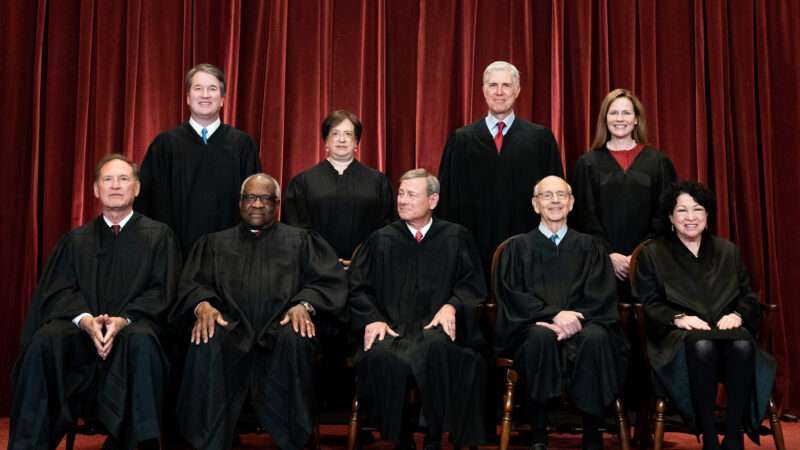
"The Constitution makes no reference to abortion," argues Justice Samuel Alito's leaked "1st Draft" opinion in Dobbs v. Jackson Women's Health Organization, "and no such right is implicitly protected by any constitutional provision, including the one on which the defenders of Roe [v. Wade] and [Planned Parenthood v.] Casey now chiefly rely—the Due Process Clause of the Fourteenth Amendment. That provision has been held to guarantee some rights that are not mentioned in the Constitution, but any such right must be 'deeply rooted in this Nation's history and tradition' and 'implicit in the concept of ordered liberty.'" Alito concludes: "The right to an abortion does not fall within this category."
Alito distorts the relevant legal history and thus misstates the historical pedigree of abortion rights. "When the United States was founded and for many subsequent decades, Americans relied on the English common law," explains an amicus brief filed in Dobbs by the American Historical Association and the Organization of American Historians. "The common law did not regulate abortion in early pregnancy. Indeed, the common law did not even recognize abortion as occurring at that stage. That is because the common law did not legally acknowledge a fetus as existing separately from a pregnant woman until the woman felt fetal movement, called 'quickening,' which could occur as late as the 25th week of pregnancy."
A survey of founding-era legal authorities confirms this view. For example, William Blackstone's widely read Commentaries on the Laws of England, first published in 1765, notes that life "begins in contemplation of law as soon as an infant is able to stir in the mother's womb." Under the common law, Blackstone explained, legal penalties for abortion only occurred "if a woman is quick with child, and by a potion, or otherwise, killeth it in her womb." Put differently, abortion was legal in the early stages of pregnancy under the common law.
Blackstone's writings had a significant influence on America's founding generation. Take James Wilson. He was a driving force at the Philadelphia Constitutional Convention and a leading voice for the Constitution's ratification at the Pennsylvania Ratifying Convention. In his 1790 Of the Natural Rights of Individuals, Wilson simply repeated Blackstone. "In the contemplation of law," Wilson wrote, "life begins when the infant is first able to stir in the womb."
At the time of the founding, no American state possessed the lawful power to prohibit abortion before quickening because the states adhered to the common law as described by Blackstone and Wilson. We might call this the original understanding of the regulatory powers of the states. And as the historical evidence makes clear, that original understanding runs counter to Alito's assertion that abortion rights—at least during the early stages of pregnancy—lack deep roots in American history.
The post What the Leaked Abortion Opinion Gets Wrong About the Founding Era appeared first on Reason.com.







